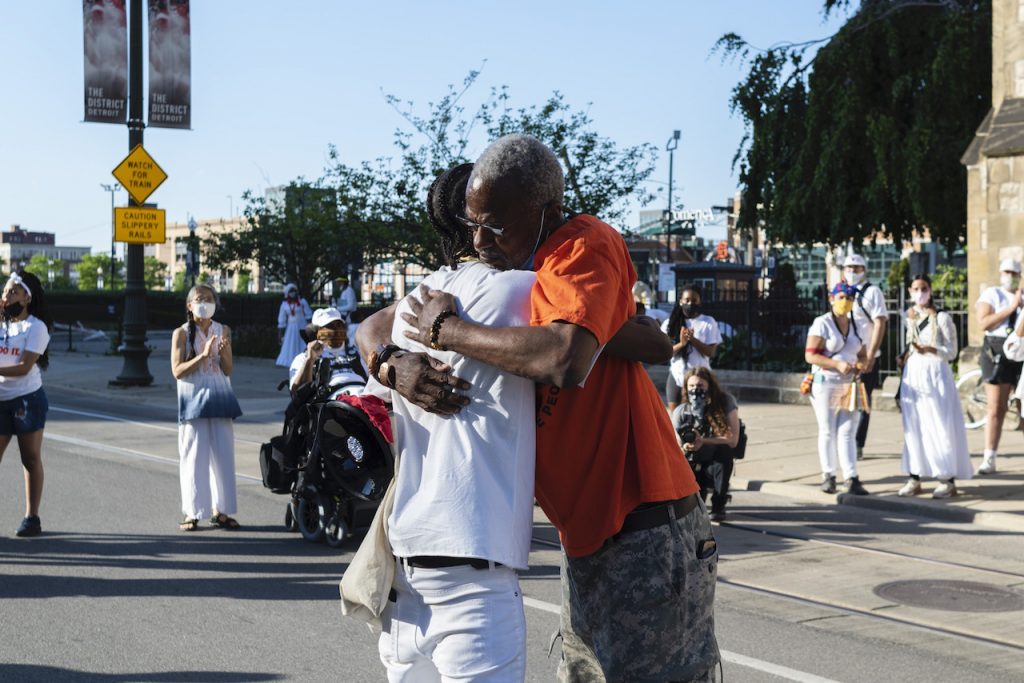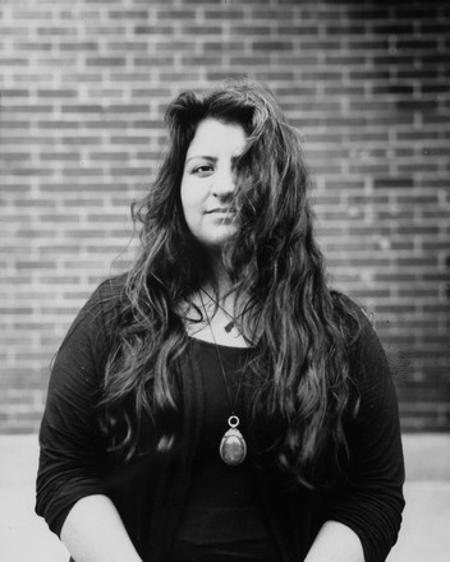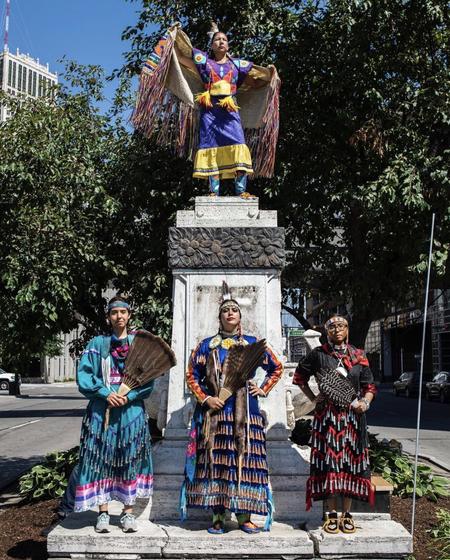Detroit Documentary Photographer Shares the Narrative that Fuels Her Art
Rosa María Zamarrón has used her photography to become a steward of the voices of her community in Southwest Detroit, Indigenous people and other communities whose stories are often left untold.

Courtney Wise Randolph writes about Detroit’s movers and shakers for Detour Detroit. Once a month, she stops by CultureShift to chat with a notable Detroiter. This month, she’s joined by Rosa María Zamarrón, a photographer from Southwest Detroit.

Rosa María Zamarrón is one of the fortunate few who discovers and accepts their purpose early in childhood.
“I’ll be doing this for the rest of my life,” Zamarrón says. “I breathe photography; it’s all I think about.”
The 32-year-old Detroit-based documentary and portrait photographer may be an heir of that purpose, passed down to her by her father who, though a hobbyist, recorded their family’s life with the lens of an artist. Growing up, she was as inspired by his photographs as she was by the documentary work she saw in magazines like National Geographic.
“He was always photographing us,” she says. “If you look through our family photo albums, they’re actually not traditional, straight-on poses. He chose more artsy styles and had a distinct voice in his own photography work. I don’t even think he realized the talent that he had, he just loved it.”
Zamarrón has been a professional photographer for a decade and has become a steward of the voices of her community in Southwest Detroit, Indigenous people and other human beings whose stories are often left in the shadow of the spotlight.
Read “Detroit photographer uses her camera to capture communities and decolonize spaces” on Detour Detroit »
“There [are] moments that take your breath away, and that’s when you know you have to snap that picture,” Zamarrón says.
In the summer of 2020, one of those moments captured by Zamarrón went viral. The scene, located in downtown Detroit, centered on four Indigenous women, dressed in Native American garments with their heads high with pride, standing where a bust of Christopher Columbus once stood.

“The goal was to show what should have been there the whole time,” Zamarrón says. “[It] was to show the importance of Native Americans and their place in the United States that has been stripped away for so many years, and now it’s about standing up to that and showing the power that these women have and men have as well.”
The image and the story it holds amplifies the visibility and mission of Zamarrón’s Decolonizing Spaces photo series — a project that showcases the power of Indigenous women and the various aspects of reclamation happening in terms of land, trauma and history.
“There are things we don’t know about that are important,” she says. “The history we were taught in schools, isn’t necessarily what’s true.” Through photography and her work in Southwest Detroit, Zamarrón expresses that it’s always about extending opportunity and showcase people in the community working to do good “in the world and our nation.”
Listen: Rosa María Zamarrón details her approach to image-making and the narrative that fuels her work.
Trusted, accurate, up-to-date
WDET is here to keep you informed on essential information, news and resources related to COVID-19.
This is a stressful, insecure time for many. So it’s more important than ever for you, our listeners and readers, who are able to donate to keep supporting WDET’s mission. Please make a gift today.
